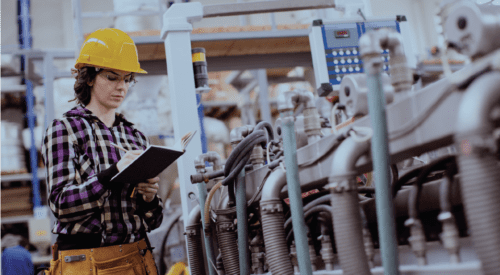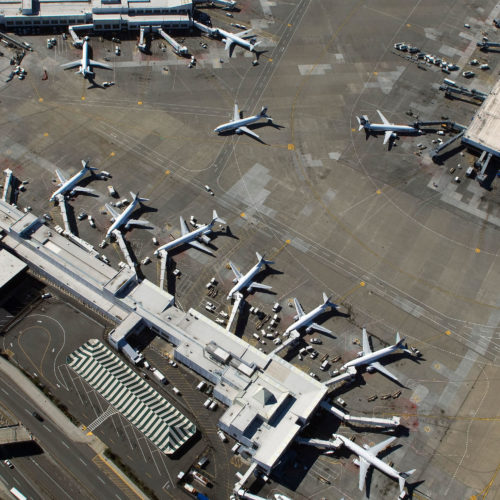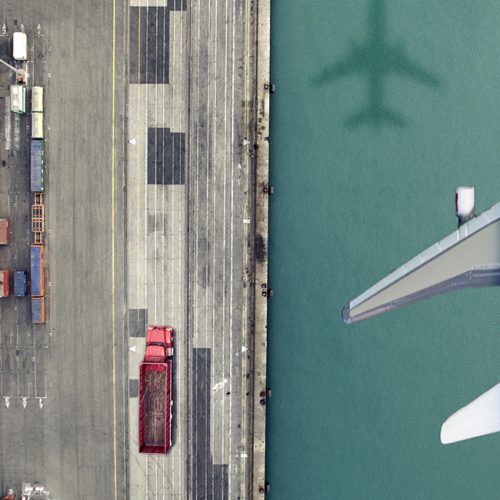Mark Grundy
Managing Director of Global Marketing & Communications

Seattle, Washington, July 19, 2017 – Carbon reduction leaders Carbon War Room (CWR) and SkyNRG join with the Port of Seattle to announce recommendations for long-term funding mechanisms that could supply all airlines at Seattle-Tacoma International Airport (Sea-Tac) with sustainable aviation biofuels.
The results are outlined in a study that reviews a broad spectrum of airport funding sources to cover the higher cost of biofuel, as well as biofuel supply chain infrastructure investments. The study, published today, was conducted by CWR and SkyNRG, in partnership with the Port.
“The information contained in this study will help us take the next steps toward our goal of making the biofuel available, cost-effective and practical for all airlines at Sea-Tac,” said Port of Seattle Commissioner John Creighton. “It wouldn’t have been possible to get to this point without the momentum provided by our partners, industry leaders and community innovators.”
The two biggest challenges facing broader adoption of sustainable aviation fuel at Sea-Tac are the higher cost compared with petroleum jet fuel, and the constraints imposed by state and federal regulations on use of airport funds.
The report, titled Innovative Funding for Sustainable Aviation Fuel at U.S. Airports: Explored at Seattle-Tacoma International, reveals the financial tools available to U.S. airports, and outlines legal constraints and financial impacts of each tool. The report found that no single tool could generate enough funding to cover the higher cost of biofuel, and recommended combining a number of funding tools.
“Until we reach fossil-price parity, we need co-funding mechanisms to close the price gap between conventional jet fuel and sustainable aviation biofuels. Sea-Tac demonstrates that airports can play a key role in helping to find the right partners to cover the premium and accelerate the transition to secure a sustainable future for the aviation industry,” said Theye Veen, Chief Financial Officer of SkyNRG.
“We congratulate Sea-Tac on its leadership in showing that airport authorities are critical to the success of the aviation biofuel industry,” said Adam Klauber, Director of CWR’s Sustainable Aviation program. “We’ve proven that there are viable funding mechanisms for the widespread uptake of sustainable aviation fuel at Sea-Tac, and we hope that the study provides tools and ideas for other ambitious airports to consider in their sustainability initiatives.”
AltAir Fuels, based in California, is the only facility in the world regularly producing aviation biofuels. The Port, as an economic development engine, is seeking ways to help grow the market. This initiative is one solution in the Port’s quest to find sustainable solutions that improve the health of our environment and community. Other Port successes include emissions reduction achieved by providing pre-heated and cooled air to aircraft parked at gates, use of electric ground support equipment, and conversion to green vehicles.
Download the report here.
Press contact: Merel Laroy, SkyNRG, merel@skynrg.com
Image Credit: Don Wilson

About Seattle-Tacoma International Airport
Operated by the Port of Seattle, Seattle-Tacoma International Airport (SEA, KSEA) is ranked as the ninth busiest U.S. airport, serving nearly 45.7 million passengers and more than 366,000 metric tons of air cargo in 2016. With a regional economic impact of more than $16.3 billion in business revenue, Sea-Tac generates 171,796 jobs (109,924 direct jobs) representing over $2.8 billion in direct earnings and more than $565 million in state and local taxes. Twenty-four airlines serve 81 non-stop domestic and 24 international destinations.

About Carbon War Room
Carbon War Room (CWR) was founded in 2009 as a global nonprofit by Sir Richard Branson and a group of like-minded entrepreneurs. It intervenes in markets to accelerate the adoption of business solutions that reduce carbon emissions at gigaton scale. In 2014, CWR merged with and now operates as part of Rocky Mountain Institute (RMI). RMI engages businesses, communities, institutions, and entrepreneurs to transform global energy use to create a clean, prosperous, and secure low-carbon future. RMI has offices in Basalt and Boulder, Colorado; New York City; Washington, D.C.; and Beijing.

